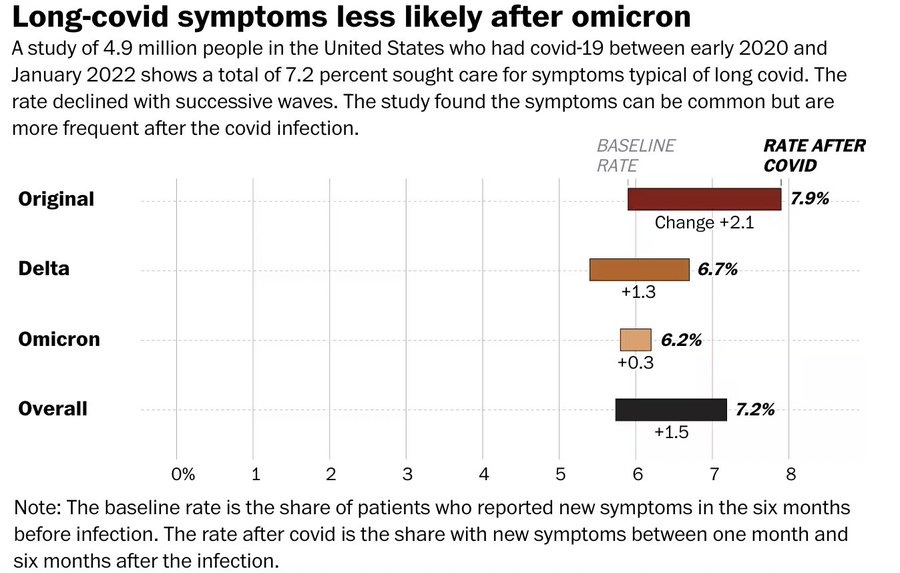rvallee
Senior Member (Voting Rights)
And add to that brain drain and loss of institutional memory. It doesn't even need to fully disable someone, mild brain fog is enough to bring someone from high performance to below average.Translated by me (not Google!)
Banco de España (Bank of Spain):
The latest reports from CIS Institution's "health barometer" show higher demand for healthcare in our country and an increase in days of work lost to sickness, short-term disability and accidents.
(The graph is titled "Economic Bulletin Articles" and the label is
Loss of work hours due to health problems*
*Employees who were not working in the past week due to sickness, accidents or disability. Percentage of employees)
There is uncertainty regarding what caused these changes and how persistent they are, but some of these data are in line with the literature on the sequelae of Covid-19. If these dynamics are prolonged and were related to a long-term decline in general health of the Spanish population, its economic impact would be significant.
(Chart: Economic effects of a possible decline in the population's health
Short term:
Long term--potential results:
- Increased demand for healthcare
- Loss of days of work
Source: Bank of Spain)
- Smaller workforce
- Lower productivity?
- Effect on accumulation of productive capital: ??
Comments:
"I'm going to print this thread and frame it. NOT WITHOUT MY MASK: we go on" (or: continue?)
"Covid can disable people. Long Covid is disabling! Unmitigated transmission is a mass disabling event." (Similar sentence structure and vocabulary to English and from a person who doesn't Tweet in Spanish. Composed with Google Translate?)
Lots of companies depend on key workers. No one is irreplaceable but some people are very expensive to replace. Like physicians. I've seen a figure from a hospital administrator saying it costs about $1M to replace one.
People don't have to stop working entirely to lose what makes their productivity valuable. A healthcare system that only accepts to even look at life-threatening stuff will completely miss this. And sure enough, it has.

